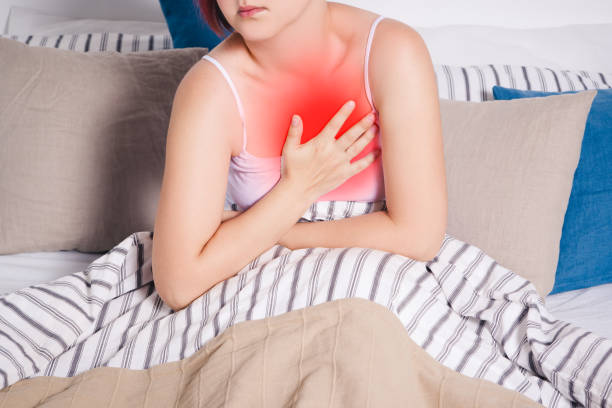Hypertensive encephalopathy is term use for associated diseases with the accelerated malignant phase of hypertension. Hypertensive encephalopathy refers to the transient migratory neurologic symptoms that are associated with the malignant hypertensive state in a hypertensive emergency.
Thank you for reading this post, don't forget to subscribe!Retinal vessels respond to elevations of systemic blood pressure by generalized arteriolar constriction. This can lead to arteriolar necrosis, retinal edema, cotton-wool spots, hemorrhage, and disc edema. If the blood pressure is controlled, or slow rising, or if arteriolar sclerosis is present in the retinal arteries, then a picture of arteriolar irregularity will be noted and, depending upon the ability of the retinal vessels to contract, segmental constriction will be seen.
In separating hypertensives from non-hypertensives, the most consistent ophthalmoscopic finding is arteriolar narrowing with focal irregularity. In prognosticating for survival, the best method available is the Keith-Wagener-Barker classification. However, the difficulty in separating Groups 1 and 2 of this classification has lead to numerous modifications that make comparisons from one study to another difficult.
The terms accelerated and malignant were used to describe the retinal findings associated with hypertension, as follows:
-
Accelerated hypertension is associated with group 3 Keith-Wagener-Barker retinopathy, which is characterized by retinal hemorrhages and exudates on funduscopic examination
-
Malignant hypertension is associated with group 4 Keith-Wagener-Barker retinopathy, which is characterized by the presence of papilledema, heralding neurologic impairment from an elevated intracranial pressure (ICP)
With adequate control of hypertension, less than 1% of patients experience a hypertensive crisis. A hypertensive crisis is classified as either a hypertensive emergency or a hypertensive urgency, as follows:
-
Acute or ongoing vital target organ damage (eg, damage to the brain, kidney, or heart) in the setting of severe hypertension is considered a hypertensive emergency; a prompt reduction in blood pressure is required within minutes or hours.
-
The absence of target organ damage in the presence of a severe elevation in blood pressure (with diastolic blood pressure frequently exceeding 120 mm Hg) is considered a hypertensive urgency; a reduction in blood pressure is required within 24-48 hours.
Earlier the terms accelerated and malignant were used to describe the retinal findings associated with hypertension but this accelerated malignancy could cause renal damage and/or failure, strok, hemiplegia, cardiac diseases etc, said Dr Qaisar Ahmed.
A continuum exists between the clinical syndromes of hypertensive urgency and emergency; hence, the distinction between the 2 syndromes may not always be clear and precise in practice.
The clinical symptoms are usually reversible with prompt initiation of therapy. In the evaluation of an encephalopathic patient, it is vital to exclude systemic disorders and various cerebrovascular events that may present with a similar constellation of clinical findings.
Pathophysiology
The clinical manifestations of hypertensive encephalopathy are due to increased cerebral perfusion from the loss of blood-brain barrier integrity, which results in exudation of fluid into the brain. In normotensive individuals, an increase in systemic blood pressure over a certain range (ie, 60-125 mm Hg) induces cerebral arteriolar vasoconstriction, thereby preserving a constant cerebral blood flow (CBF) and an intact blood-brain barrier.
normotensive individuals, an increase in systemic blood pressure over a certain range (ie, 60-125 mm Hg) induces cerebral arteriolar vasoconstriction, thereby preserving a constant cerebral blood flow (CBF) and an intact blood-brain barrier.
In chronically hypertensive individuals, the cerebral autoregulatory range is gradually shifted to higher pressures as an adaptation to the chronic elevation of systemic blood pressure. This adaptive response is overwhelmed during a hypertensive emergency, in which the acute rise in systemic blood pressure exceeds the individual’s cerebral autoregulatory range, resulting in hydrostatic leakage across the capillaries within the central nervous system.
Brain MRI scans have shown a pattern of typically posterior (occipital greater than frontal) brain edema that is reversible. This usually is termed reversible posterior leukoencephalopathy or posterior reversible encephalopathy syndrome (PRES).
With persistent elevation of the systemic blood pressure, arteriolar damage and necrosis occur. The progression of vascular pathology leads to generalized vasodilatation, cerebral edema, and papilledema, which are clinically manifested as neurologic deficits and altered mentation in hypertensive encephalopathy.
Etiology of Hypertensive Encephalopathy
The most common cause of hypertensive encephalopathy is abrupt blood pressure elevation in a chronically hypertensive patient. Other conditions that can predispose a patient to elevated blood pressure and cause the same clinical situation include the following:
- Chronic renal parenchymal disease.
- Acute glomerulonephritis.
- Renovascular hypertension.
- Withdrawal from hypertensive agents (eg, clonidine).
- Encephalitis, meningitis, Head trauma, cerebral infarction.
- Pheochromocytoma, renin-secreting tumors.
- Sympathomimetic agents (eg, cocaine, amphetamines, phencyclidine [PCP], and lysergic acid diethylamide [LSD] etc).
- Eclampsia and preeclampsia.
- Collagen-vascular disease.
- Autonomic hyperactivity.
- Vasculitis.
Ingestion of tyramine-containing foods or tricyclic antidepressants in combination with monoamine oxidase inhibitors (MAOIs)
History
Most patients with hypertensive encephalopathy have a history of hypertension and gastrointestinal tract (GIT) infections/diseases especially liver, said Dr Qaisar Ahmed.
In patients who do not have a prior history of hypertension, place emphasis on the past medical history, the medication list, and medication compliance. Actively seek drug-induced causes, for example, sympathomimetic agents and illicit drugs such as cocaine etc.
Patients usually have vague neurologic symptoms and may present with symptoms of headache (usually anterior and constant in nature), confusion, visual disturbances, seizures, nausea, and vomiting (eating disorder). The onset of symptoms usually occurs over 24-48 hours, with neurologic progression over 24-48 hours.
According to Dr Qaisar Ahmed, patients also may present with symptoms resulting from other end-organ damage. Examples of these symptoms include the following:
- Cardiovascular symptoms of aortic dissection, congestive heart failure, angina, palpitations, irregular heartbeat, or dyspnea.
- Pulmonary (Pulmonary edema, rales, and wheezes).
- Renal hematuria and acute renal failure.
- Hepatic diseases/infections.
- Duodenal diseases (ulcers, gastritis, H.pylori etc).
Physical Examination
A thorough and complete neurologic and ophthalmoscopic (funduscopic) examination is essential in the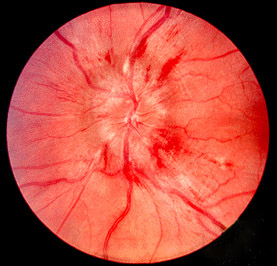 evaluation of patients. On ophthalmoscopy, grade IV retinal changes are associated with hypertensive encephalopathy, including papilledema, hemorrhage, exudates, and cotton-wool spots. Although papilledema is usually considered a more severe finding, it actually does not confer worse survival than hemorrhages and exudates alone.
evaluation of patients. On ophthalmoscopy, grade IV retinal changes are associated with hypertensive encephalopathy, including papilledema, hemorrhage, exudates, and cotton-wool spots. Although papilledema is usually considered a more severe finding, it actually does not confer worse survival than hemorrhages and exudates alone.
Neurologic examination reveals transient and migratory neurologic nonfocal deficits ranging from nystagmus to weakness and an altered mental status (confusion, delirium, dementia, coma). A careful vascular examination to evaluate for vasculopathy; radiologic examinations might not acutely identify ischemic stroke.
Differential diagnosis
- Eclampsia.
- Head Trauma.
- Hepatic Encephalopathy.
- Pheochromocytoma.
- Subarachnoid Hemorrhage Surgery.
- Subdural Hematoma Surgery.
- Uremic Encephalopathy.
Diagnosis for Hypertensive Encephalopathy
Hypertensive encephalopathy is a diagnosis of exclusion, and other potentially life-threatening causes must be considered in the assessment of a patient with neurologic deficits. In addition to the conditions listed in the differential diagnosis, other problems to be considered include the following:
- Acute central nervous system (CNS) event.
- Acute thrombotic stroke.
- Cerebral embolism.
- CNS tumors.
- Encephalitis.
- Intracranial hemorrhage.
- Renal failure.
Laboratory and radiologic studies do not take the place of a careful history and physical examination.
Obtain a complete blood count (CBC) to determine whether microangiopathic hemolytic anemia is present.
Urinalysis, blood urea nitrogen (BUN) and creatinine levels; with hypertensive nephropathy, an elevated creatinine with hematuria and casts may be present. Perform a urine toxicology screen to help exclude drug-induced hypertensive encephalopathy.
Cardiac enzyme studies to exclude myocardial ischemia. Electrocardiography (ECG) to evaluate for the presence of cardiac ischemia.
Computed tomography (CT) or magnetic resonance imaging (MRI) of the head (to look for indications of stroke, hemorrhage, or intracranial tumors).
Chest radiographs to evaluate for possible complications of hypertensive encephalopathy, including aspiration due to altered mentation. Chest radiographs can also be used to evaluate for other conditions, such as acute pulmonary edema and aortic dissection.
Allopathic treatment for Hypertensive Encephalopathy
Consult your physician before taking any allopathic supplements, as it is now proven that allopathic supplements are more hazardous to health then its benefits.
Allopathic drugs selected for use in hypertensive encephalopathy should have minimum adverse effects on the central nervous system (CNS). Avoid agents such as clonidine, reserpine, and methyldopa. Although the clinical impact of diazoxide has not been determined, this agent is avoided because of the impact of decreased CBF.
Acute monitoring in an intensive care unit (ICU) with arterial blood pressure monitoring is required for adequate titration of allopathic drugs and monitoring of end-organ function. Potential complications of allopathic therapy (eg, overzealous reduction in blood pressure and adverse effects or toxicity of pharmacologic therapy) must be watched for.
Here are few allopathic medicines for hypertensive encephalopathy:
Nicardipine
Nicardipine is a second-generation dihydropyridine-derivative calcium channel blocker, which has high vascular selectivity and strong cerebral and coronary vasodilatory activity. It has been shown to increase stroke volume and coronary blood flow.
Labetalol
Labetalol provides a steady consistent drop in blood pressure without compromising CBF. It is frequently used as initial therapy. Because of its nonselective beta-blocking properties, labetalol should be avoided in severe reactive airway disease and cardiogenic shock.
Esmolol
Esmolol is an ultrashort-acting agent that selectively blocks beta1 receptors but has little or no effect on beta2 receptor types. It is particularly useful in patients with elevated arterial pressure, especially if surgery is planned. Esmolol has been shown to reduce episodes of chest pain and clinical cardiac events in comparison with placebo. It can be discontinued abruptly if necessary.
Nitroglycerin
Nitroglycerin has been used to provide a rapid reduction in elevated blood pressure complicating myocardial ischemia. The reduction in blood pressure may be severe and can cause further complications due to vasodilatory effects in volume-contracted individuals.
Nitroprusside sodium and hydralazine
Phentolamine
Hydralazine
If neurologic deterioration worsens with therapy, it is necessary to reconsider the extent of blood pressure reduction or to consider alternate diagnoses and alternate therapy.
Acute inpatient ICU monitoring with arterial blood pressure monitoring is required for adequate titration of pharmacologic agents. Routinely perform neurological assessment to monitor signs of deterioration due to inadequate treatment, evaluation the progression of a neurologic insult, watch for overzealous reduction of blood pressure, or assess a possible alternative cause of the clinical presentation.
Note: Quickly and effectively treat severe hypertension to avoid progression to coma and death. If invasive monitoring is not immediately available, initiate alternative therapy with agents that do not require close monitoring until a monitored situation becomes available.
Homeopathic treatment for Hypertensive Encephalopathy
In patients without hypertension, cerebral autoregulation preserves a relatively constant cerebral blood flow (CBF) at a mean arterial pressure (MAP) range of 60-90 mm Hg. In chronically hypertensive patients, autoregulation is altered and shifted upward to maintain a relatively constant CBF at a higher MAP range.
When Homeopathic therapy is initiated, it is important to consider the baseline blood pressure in order to avoid excessive blood pressure reduction and prevent cerebral ischemia. It is usually safe to reduce MAP by 25% and to lower the diastolic blood pressure to 100-110 mm Hg.
Deterioration of clinical status despite therapy warrants immediate and further investigation into other possible etiologies or reevaluation of therapy for worsening hypertensive encephalopathy.
When Homeopathic remedy comes into contact with water, it polarises the water molecules so they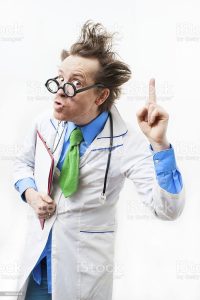 retain a unique electromagnetic signature that has a dynamic healing effect. This healing effect may relate to the way the water molecules are aligned, in a similar way that sounds are stored on the compact disk or in microchip, for translation into voice/data when played.
retain a unique electromagnetic signature that has a dynamic healing effect. This healing effect may relate to the way the water molecules are aligned, in a similar way that sounds are stored on the compact disk or in microchip, for translation into voice/data when played.
Remember: Whenever a doctor don’t know the reason of high blood pressure, How is it possible to treat hypertension ???? !
In my opinion (Dr. Qaisar Ahmed MD, DHMS) first of all we have to treat GIT function especially Liver, we have to control cholesterol, atherosclerosis, make sure that intestines (duodenum, small intestine and large intestine) are functioning properly; and simultaneously start treatment for Hypertensive Encephalopathy.
Many minerals and vitamins potentialized Homeopathically, (Calcium, Phosphorus, Sodium, Magnesium, Potassium, Vit-D, Vit-C, Vit-A, Vit-K etc) are also play very important role in regulating blood flow.
Remember – Every disease has a cure and Hypertensive Encephalopathy has too.
Here are some Homeopathic medicine for Hypertensive Encephalopathy and its cause(s); doctor have to find perfect medicine for his/her patient to advise and treat/normalize hypertension for ever.
Aconitum Napellus
Aconitum Napellus is a medicine for high blood pressure and Hypertensive Encephalopathy along with anxiety and restlessness, sudden fear of death, tachycardia, palpitations, a pressure in the left side of the chest, sensation of weight under the sternum and oppression of the chest. Pain in the heart extending to the left shoulder, Breathing painful, Breathing slow during sleep. Asthma. Pneumonia. Tuberculosis. Glands infections.
Liver, Inflammation and infections. Jaundice, Loose, watery stools, clay-coloured stools. Malaria. Dengue. Remittent fever. Roseola. Scarlatina. Shivering. Insomnia. Renal diseases.
Aesculus Hippocastanum
Medicine of my (Dr Qaisar Ahmed) choice for any cylindrical shaped organ….
Intestinal diseases. Hemorrhoids. Crohn’s disease. Liver infections. Jaundice. Sensation of fullness, flatulence, fetid flatus, colicky pains; haemorrhoidal colic, Hernia inguinal. Uterine diseases. Respiratory diseases. Deep vein thrombosis (DVT). Arteriosclerosis. Hypertensive Encephalopathy. Twitching over region of heart, Stitches and neuralgic pains in region of heart, especially apex; and forehead, Functional disturbances of the heart.
Allium Sativum
Allium Sativum – high blood pressure with high cholesterol levels nad Hypertensive Encephalopathy. Asthma (periodical). Bronchitis. Bradycardia. Leaping heart beats. Small and large intestinal diseases. Diarrhoeic stools. Constipation. Dyspepsia. Rheumatism. Chronic infections. Poor blood circulation (arteriosclerosis). Kidneys/urinary tract diseases. PCOs.
Amylenum Nitrosum
Dyspnoea and asthmatic feelings. Great oppression and fullness of chest; spasmodic, suffocative cough. Praecordial anxiety. Tumultuous action of heart. Pain and constriction around heart. Fluttering at slightest excitement. Fluttering in the heart and intensified beating of the heart (Tachycardia, Bradycardia) along with Hypertensive Encephalopathy. Profuse sweating.
Argentum Nitricum
High blood pressure due to anxiety and mental agitations. Arteriosclerosis, Superficial arterial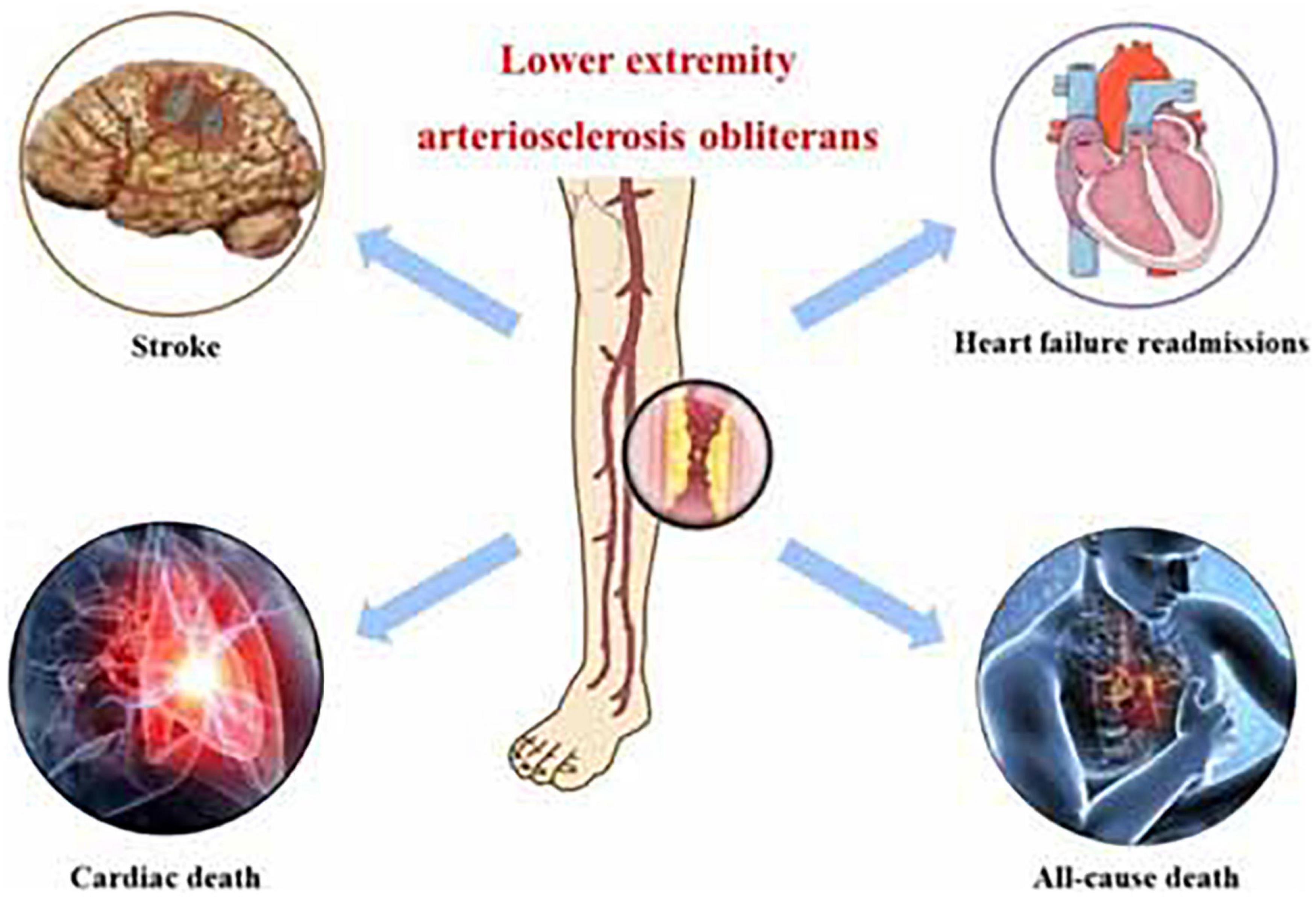 hyperaemia. Palpitation of the heart, especially the flushings and other discomforts at climacteric. Anxiety, as if something might happen; must have fresh air. Surging of blood to head and face; sensation as if blood would start through skin, with heat and redness. Acidity. Addison’s disease. Anaemia.
hyperaemia. Palpitation of the heart, especially the flushings and other discomforts at climacteric. Anxiety, as if something might happen; must have fresh air. Surging of blood to head and face; sensation as if blood would start through skin, with heat and redness. Acidity. Addison’s disease. Anaemia.
All conditions where the blood vessels are spasmodically contracted, as in angina pectoris (Arteriosclerosis), epileptic seizure, megrim, accompanied by cold, pallor, etc, also in paroxysms of asthma, chloroform asphyxia. Hypertensive Encephalopathy.
Baryta Muriaticum
Baryta Mur is a medicine for high blood pressure with high systolic reading and a low diastolic reading. The arteriosclerotic, Aneurysms. Anal abscess. Asthma. Vertigo. Bradycardia/irregular heartbeats and a heated sensation in the upper part of the chest. Aneurysm, Heat in the upper part of the chest, Throbbing of the heart accelerated (tachycardia). Heart-beats irregular (Bradycardia), pulse scarcely perceptible. Fistula. Glandular swellings. Gleet. Gonorrhoea. Idiocy. Leucorrhoea. Mania. Mumps. Nymphomania. Otorrhoea. Pancreatitis. Paralysis. Scrofula. Sterility. Testicles infections. Tinea capitis. Tinnitus. Tonsillitis. Hypertensive Encephalopathy. Tumours. Indigestion. Liver diseases. Liver tumors. Inflammation of inguinal glands. Inflammation of cervical glands. Buboes. Sterility. Leucorrhoea. Induration, tumour or atrophy of ovaries. Nymphomania. Minerals deficiency.
Baryta Carbonica
Used for hypertension in patients who are very shy and have difficulty concentrating. Aneurysm. Apoplexy. Atrophy. Baldness. Brain infections. Cysts. Feet-sweating. Glandular swellings. Haemorrhoids. Heart diseases. Vascular disease (varicose, DVT). Hypertensive Encephalopathy. Memory defective. Esophageal spasm. Panaris. Paralysis. Parotitis. Prostate, enlarged. Quinsy. Throat, sore. Tonsils, enlarged. Tumours. Warts. Wens. Indigestion. Polyuria. Gleet. Hypertrophied prostate. Leucorrhoea. PCOs. Respiratory diseases.
Convallaria
Diarrhoea. Heart diseases. Bradycardia. Viral infections. Herpes. Pruritus vulvae. Eating disorders. Vomiting. Depression. Small intestine diseases. PCOs. Vagainal infections.
Crataegus Oxyacantha
Crataegus Oxyacantha help lower the blood pressure by dissolving the calcareous deposits in the arteries (arteriosclerosis). Pain in the region of the heart, oppression of chest, accelerated pulse and irregular pulse, anxiety and cardiac dyspnea. Hypertensive Encephalopathy. Angina pectoris. Heart diseases. Heart failure. Cardiac hypertrophy. Irritability, crossness, melancholy. Hurried and flurried feeling. Indigestion. Hypertrophy from overexertion; from alcoholic, from venereal and other excesses. Heart collapse in typhoid. Heart dropsy/Cardiac hypertrophy.
Aurum Metallicum
A common recommendation for patients with hypertension triggered by stress endured over the long term. It’s like it’s burning inside them; this feeling is often linked to their job. Alcohol effects. Amenorrhoea. Angina pectoris. Asthma. Bone diseases/infections. Digestion problems. Corpulency. Depression. Auditory infections. Erethism. Erysipelas. Eye infections. Fevers. Gonorrhoea. Haemorrhages. Hemorrhoids. Hemiopia. Hydrocele. Jaundice. Leucorrhoea. Locomotor ataxy. Melancholy. Melanosis. Mercurial poisoning. Hypertensive Encephalopathy. Nasopharyngeal catarrh. Night terrors. Ozoena. Paralysis. Phthisis. Scrofula. Smell, disordered. Syphilis. Testicles infections. Undeveloped sexual organs. Tongue nodules. Tumours. Uterine induration. Vertigo. Vision disordered.
effects. Amenorrhoea. Angina pectoris. Asthma. Bone diseases/infections. Digestion problems. Corpulency. Depression. Auditory infections. Erethism. Erysipelas. Eye infections. Fevers. Gonorrhoea. Haemorrhages. Hemorrhoids. Hemiopia. Hydrocele. Jaundice. Leucorrhoea. Locomotor ataxy. Melancholy. Melanosis. Mercurial poisoning. Hypertensive Encephalopathy. Nasopharyngeal catarrh. Night terrors. Ozoena. Paralysis. Phthisis. Scrofula. Smell, disordered. Syphilis. Testicles infections. Undeveloped sexual organs. Tongue nodules. Tumours. Uterine induration. Vertigo. Vision disordered.
Glonoinum (Nitroglycerine)
High blood pressure accompanied by headaches, intense headache…congestive…throbbing and bursting in nature. Strong palpitations, dyspnoea, heat in the face and cardiac pains radiating to other parts. Hypertensive Encephalopathy. Exertion leading to rush of blood to the heart and fainting spells, nephritis (kidney inflammation) with high blood pressure. Anxiety. Congestive headaches, hyperaemia of the brain from excess of heat or cold.
Dyspnoea and asthmatic feelings. Great oppression and fullness of chest; spasmodic, suffocative cough. Praecordial anxiety. Tumultuous action of heart. Pain and constriction around heart. Fluttering at slightest excitement. After-pains; haemorrhage associated with facial flushing. Climacteric headache and flushes of heat, with anxiety and palpitation.
Kali Phos
Kali Phos for high blood pressure is used when stress and worry are the main cause of the blood pressure. Palpitations from slight motion, shortness of breath, and irregular pulse, along with both mental and physical fatigue, Neurasthenia, hypochondriasis, Vomiting of blood and palpitation of the heart. Liver sensitive to pressure, Stinging and catching in spleen. Stool clay coloured, watery; with urging, putrid flatus, followed by tenesmus. Intensely sharp, cutting pains (transitory) under right breast and near waist, catching breath; Chest: painful; stinging in chest and sides; sore to touch; aching radiates to scapula. Blue spots on skin (minimum or stoped/blocked blood circulation).
Amenorrhoea. Anaemia. Asthma. Atrophy. Brain concussion. Brain-fag. Brain-softening. Cancrum oris. Carbuncle. Chilblains. Cholerine. Diphtheria. Dysentery. Enuresis. Feet, fidgety. Gangrene. Hypochondriasis. Hypertensive Encephalopathy. Hysteria. Insomnia. Melancholia. Menstrual headaches. Nervous dyspepsia. Neurasthenia. Night-terrors. Noma. Nymphomania. Edema pulmonum. Paralysis. Pneumonia. Ptosis. Puerperal fever. Puerperal mania. Sciatica. Scurvy. Stomach, ulcer of. Ulcers. Urticaria. Whitlow. Face neuralgia.
Latrodectus Mactans
Latrodectus Mactans – high blood pressure with marked heart pains. The heart pain radiates to the shoulder to arm and fingers. There may be numbness of the upper limb, suffocation, restlessness, and extreme weakness.
Violent precordial pains extending to axilla and down left arm and forearm – fingers with numbness of the extremity and apnoea. Later, most violent precordial pains and pain in left arm, which was almost paralysed; Rapid Pulse – pulse so frequent it could not be counted and so feeble it could scarcely be felt. Hypertensive Encephalopathy. Pulse quick and thready (in few minutes). Pain extends from bitten right hand to back of head; more violent pain in precordial, extending thence to left shoulder and axilla, down arm to fingers ends, left arm partially paralysed; left pulse extinct, right pulse doubtful. Pain in precordial with apnoea; screaming fearfully, exclaiming that she/he would lose her/his breath and die.
Adrenalinum (Epinephrine)
Adrenalinum, also known as epinephrine, is intended to stimulate the sympathetic nerve endings to constrict the blood vessels. This homeopathic remedy for high blood pressure helps settle the roaring noise in the ears, as it causes a sudden fall in pressure.
The rapid drop in blood pressure levels calls for the recommended low dosage (four drops into a teaspoon of water three times a day for adults) and close monitoring to prevent the levels from falling too low, or too fast. Hypertensive Encephalopathy.
Nux Vomica
Nux Vomica for high blood pressure in young patients, who adopt sedentary modern lifestyle habits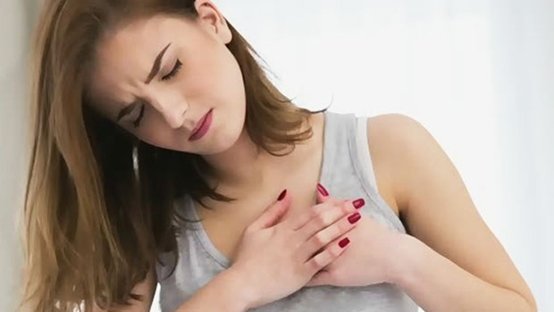 (smoking, alcohol consumption, sedentary routine, a lack of exercise, restaurant food, etc). Hypertensive Encephalopathy. Shootings, blows in region of heart, Anxious palpitation of the heart (techicordiya). Indigestion.
(smoking, alcohol consumption, sedentary routine, a lack of exercise, restaurant food, etc). Hypertensive Encephalopathy. Shootings, blows in region of heart, Anxious palpitation of the heart (techicordiya). Indigestion.
Urinary tract infections. Hematuria. Kidney Stones/Renal calculi. Dysmenorrhoea. PCOs.
Belladonna
While good for throbbing and violent conditions that start suddenly, it can be useful for high blood pressure as well. It’s one of the main remedies in a hypertensive crisis, with flushes of heat, pounding headache, and impending stroke. Abscess. Acne. Amaurosis. Apoplexy. Glandular swellings. Goetre. Ear infections. Eye infections. Bronchial glands disease. Cough. Croup. Lung infections. Pneumonia. Whooping-cough. Bladder weakness. Boils. Brain infections and diseases. Carbuncle. Colic. Constipation. Convulsions. Delirium tremens. Depression. Diarrhoea. Dysentery. Throat infections. Tongue infections. Enteric fever. Epilepsy. Erysipelas. Hydrocephalus. Hydrophobia. Erythema. Excitement. Fear effects. Gout. Haemorrhoids. Headache. Pregnancy disorders. Sensitiveness. Sleep disorders. Smell, disordered. Strangury. Taste disordered.
Hypertensive Encephalopathy. Heart diseases. Hyperaemia. Influenza. Kidney infections. Malignant pustule. Mania. Measles. Meningitis. Menstruation. Mouth affections. Mumps. Neuralgia. Nose, affections of. Nyctalopia. Nymphomania. Paralysis. Parametritis. Perichondritis. Perimetritis. Peritonitis. Phlegmasia alba dolens. Pleurisy. Pneumogastric paralysis. Puerperal mania. Rheumatism. Roseola. Scarlatina. Tenesmus. Testicles, affections of. Thirst. Tuberculosis. Ulcers. Uterine affections. Vaccinia. Vertigo. Worm fever.
Rauvolfia Serpentina
Patients with neuropsychiatric conditions, It deplete catecholamine from peripheral sympathetic nerve endings which Controlling heart rate, force of cardiac contraction and peripheral vascular resistance. Diabetes. Insomnia. Hysteria. Plague. Schizophrenia. Urine incontinence. Thyroid diseases. Rheumatism. Hypertensive Encephalopathy.
It is world’s most successful blood pressure lowering medicine.
Tabacum Nicotiana
Tabacum Nicotiana is best medicine for high blood pressure for patients with habit of taking tobacco (any form).
Symptoms include palpitations (especially while lying on the left side), oppression in the chest and a rapid pulse, pain between shoulders, inability to take a deep breath and twisting sensation around the heart. Vertigo on opening eyes; sick headache, with deathly nausea. Constipation. Hypertensive Encephalopathy. Pulse intermits, feeble, imperceptible. Angina pectoris, pain in praecordial region. Pain radiates from center of sternum. Tachycardia. Bradycardia. Acute dilatation caused by shock or violent physical exertion.
Strophanthus Hispidus
Strophanthus Hispidus is best medicine for high blood pressure in aged patients with arteriosclerosis. Hypertensive Encephalopathy. Strong palpitations that get worse upon emotional release and exercise, constriction behind sternum, difficult breathing, alternating rapid and slow pulse. Temporal pains with double vision, impaired sight; brilliant eyes, flushed face. Senile vertigo. Urinary – increased secretion; scanty and albuminous. Dyspnoea, especially on ascending. Lungs congested. Edema of lungs. Bronchial and cardiac asthma. Pulse quickened. Heart’s action weak, rapid irregular, due to muscular debility; and insufficiency. Cardiac pain.
constriction behind sternum, difficult breathing, alternating rapid and slow pulse. Temporal pains with double vision, impaired sight; brilliant eyes, flushed face. Senile vertigo. Urinary – increased secretion; scanty and albuminous. Dyspnoea, especially on ascending. Lungs congested. Edema of lungs. Bronchial and cardiac asthma. Pulse quickened. Heart’s action weak, rapid irregular, due to muscular debility; and insufficiency. Cardiac pain.
Lachesis
Lachesis is one of the most leading homeopathic medicine in controlling high blood pressure an Hypertensive Encephalopathy. Palpitation, with fainting spells, especially during climacteric. Constricted feeling causing palpitation, with anxiety. Cyanosis. Irregular beats.
Lachesis should be advised when there is marked restlessness physically as well as mentally. feeling of anything tight around the neck (like closed collars, neck ties or tight necklaces) are unbearable. Feel better by loosening the belts or by wearing loose clothes; high blood pressure in menopausal age or post menopause. Loquacity. Sad in the morning. Restless and uneasy. Jealous. Sun headaches. With headache, flickerings, dim vision, very pale face. Vertigo. Relieved by onset of a discharge. Septic parotiditis. Diphtheria. Eating disorders. Indigestion. Constipation. Hemorrhoids. PCOs.
Natrum Muriaticum
Natrum Mur is one of the most indicated remedies in cases of Hypertensive Encephalopathy; high blood pressure which occur due to a prolonged intake of high levels of sodium chloride, swelling of the feet in the mornings, Morning sickness – an unusual fatigue in the mornings. Sense of tightness around the chest region and palpitations on slightest exertion. High blood pressure associated with hyperthyroidism/goiter. Extreme sensitiveness to any external stimuli like sounds, smells or lights. Tachycardia. Sensation of coldness of heart. Heart and chest feel constricted. Fluttering, palpitating; intermittent pulse. Heart’s pulsations shake body. Burning pains and stitching after stool. Anus contracted, torn, bleeding. Constipation; stool dry, crumbling. Painless and copious diarrhoea, preceded by pinching pain in abdomen. Vagina dry. Leucorrhoea acrid, watery. Bearing-down pains. PCOs.
Veratrum Viride
Veratrum Viride helps in reducing arterial tension and normalizing cardiac palpitations. Congestion intense, almost apoplectic. Hot head, bloodshot eyes. Bloated, livid face. Hippocratic face, Difficult breathing. Sensation of a heavy load on chest, Pulse slow, soft, weak, irregular, intermittent. Hypertensive Encephalopathy. Rapid pulse, low tension. Hot head, bloodshot eyes. Bloated, livid face. Hippocratic face. Meningitis. Thirsty. Nausea and vomiting. Smallest quantity of food or drink immediately vomits.
Constant, dull, burning pain in region of heart. Valvular diseases. Beating of pulses throughout body, especially in right thigh. Congestion of lungs. Difficult breathing. Sensation of a heavy load on chest. Pneumonia, with faint feeling in stomach and violent congestion. Croup. Constant, dull, burning pain in region of heart. Valvular diseases. Beating of pulses throughout body, especially in right thigh.
P. S : This article is only for doctors and scholores having good knowledge about Homeopathy and allopathy, for research learning purpose(s).
For proper consultation and treatment, please visit our clinic.
Location, address and contact numbers are given below.
NoN of above mentioned medicine(s) is/are the full/complete treatment, but just hints for treatment; every patient has his/her own constitutional medicine.
To order medicine by courier, please send your details at WhatsApp– +923119884588
 Dr. Sayyad Qaisar Ahmed (MD {Ukraine}, DHMS), Abdominal Surgeries, Oncological surgeries, Gastroenterologist, Specialist Homeopathic Medicines.
Dr. Sayyad Qaisar Ahmed (MD {Ukraine}, DHMS), Abdominal Surgeries, Oncological surgeries, Gastroenterologist, Specialist Homeopathic Medicines.
Senior research officer at Dnepropetrovsk state medical academy Ukraine.
Location: Al-Haytham clinic, Umer Farooq Chowk Risalpur Sadder (0923631023, 03119884588), K.P.K, Pakistan.
Find more about Dr Sayed Qaisar Ahmed at :
https://www.youtube.com/Dr Qaisar Ahmed
